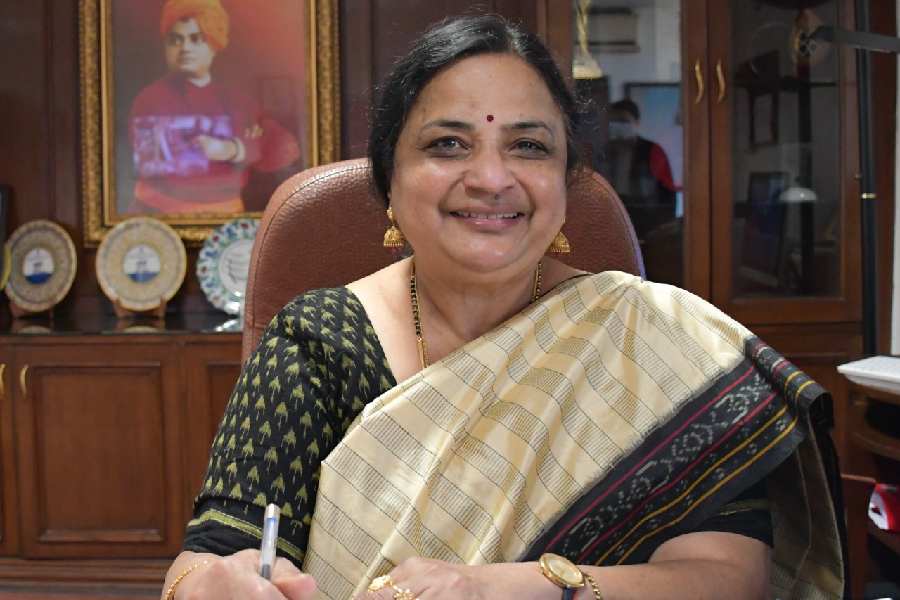Asserting that Lord Ram is a unifying force, JNU vice-chancellor Santishree D Pandit has said building the Ram temple in Ayodhya was important to reconcile with the civilisational history of India and it will bring a paradigm shift in the country.
She also advocated a need to create a space where no one should insult others' faith. Her remarks came a few weeks after an incident in which graffiti and slogans calling for the rebuilding of Babri Masjid were scribbled on the walls of the campus.
In an interview with PTI, Pandit said the university is taking steps to ramp up security measures on the campus to avoid instances of religious "intolerance" following the incident.
Talking about the consecration ceremony, she said the building of the Ram temple in Ayodhya will bring a paradigm shift in the country and if one has to feel one with their country, it is these symbols (Lord Ram) that will bind people together.
"Ram is a unifying image or symbol for me. Ram is a unifying symbol across the country. The building of Ram Mandir is important to reconcile with the civilisational history of India," she said.
"I think this is a paradigm shift. If I have to feel one with my country, despite our diversity, it is these symbols (Ram) that will bring us together," she told PTI during the interview.
A controversy erupted in December last year after pictures of graffiti, calling for the rebuilding of Babri Masjid, on the wall of JNU's School of Languages surfaced online.
Speaking about the graffiti, she said that the administration is in talks with the Centre to repair the broken walls of the campus from where outsiders often enter the university and might be responsible for writing such things to gain attention.
"The problem we have had is we don't have enough cameras on campus. So how do you catch the culprit? Secondly, we have security but they are at the entrance and many people enter the campus from the broken walls. So, we don't know who exactly wrote it-- whether it's an insider or an outsider," she said.
There have been multiple instances of graffiti being painted on the walls of the campus.
"In any university, you will have these lunatic fringe elements who want some sort of attention. And I think the only way to correct this type of extreme ideology or fanaticism, or intolerance to the other is to create spaces where no one should insult each others' faith," she added.
The vice-chancellor said the administration aims to create a space in the university where everyone can express themselves freely in a responsible manner without hurting or insulting others' faith.
The JNU administration is also currently surveying key areas on campus to identify spots where the CCTV cameras can be installed, in a bid to ramp up security, she said.
A violent clash broke out in JNU in April 2022 between two student groups during the Ram Navami celebration allegedly over the serving of non-vegetarian food in the Kaveri hostel. Some students sustained injuries during the clash.
The Pran Pratishtha at the Ram temple in Ayodhya will take place on January 22 which will be attended by Prime Minister Narendra Modi and other senior leaders.
Except for the headline, this story has not been edited by The Telegraph Online staff and has been published from a syndicated feed.










